| Source (Hebrew) | Adaptation (German) | Translation of German (English) |
|---|---|---|
Wird an Pesach, Schowuaus und Sukkaus, an Neumondstagen und an Chanukko gebetet. |
Prayed on Pesach, Shavuot, and Sukkot, on new moon days and on Hanukkah. | |
בָּרוּךְ אַתָּה יְהֹוָה אֱלֹהֵינוּ מֶלֶךְ הָעוֹלָם אֲשֶׁר קִדְּשָׁנוּ בְּמִצְוֹתָיו, וְצִוָּנוּ לִקְרֹא אֶת הַהַלֵּל: |
Preis und Dank sei Dir, O Gott! Zu unserer Heiligung hast Du uns Deine Gebote gegeben, zu unserer Erhebung und Vervollkommnung willst Du von uns in Deiner Grösse und Gnade erkannt und verherrlicht werden. |
Praise and thanks be to you, O God! For our sanctification you have given us your commandments, for our elevation and perfection, you want us to know and glorify you in your greatness and grace. |
This adapted translation of the blessing commencing Hallel by Rabbi Max Grunwald can be found in his anthology of Jewish women’s prayer, Beruria: Gebet- und Andachtsbuch für jüdische Frauen und Mädchen (1907), page 306. The same translation of the Hallel blessing appears in the revised second edition (1909), before an entirely new adapted translation of the Hallel psalms by Lisa Tarlau.
The transcription of the German provided machine-readable text for machine translations by DeepL, which we then edited for accuracy and clarity. We welcome any/all corrections, improvements, and additional transcriptions and translations of this work’s contents. –Aharon Varady
Source(s)


“ברכת הלל | Hallel blessing (trans. Rabbi Max Grunwald, 1907)” is shared through the Open Siddur Project with a Creative Commons Attribution-ShareAlike 4.0 International copyleft license.
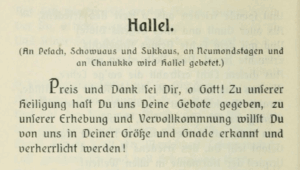



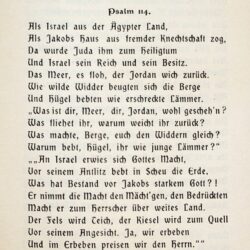
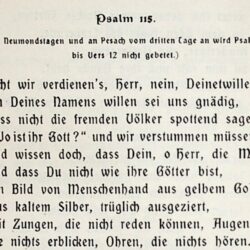
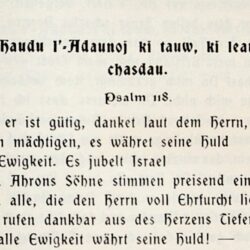
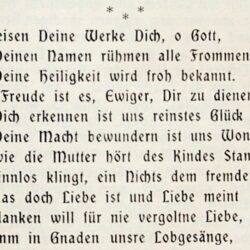


Leave a Reply